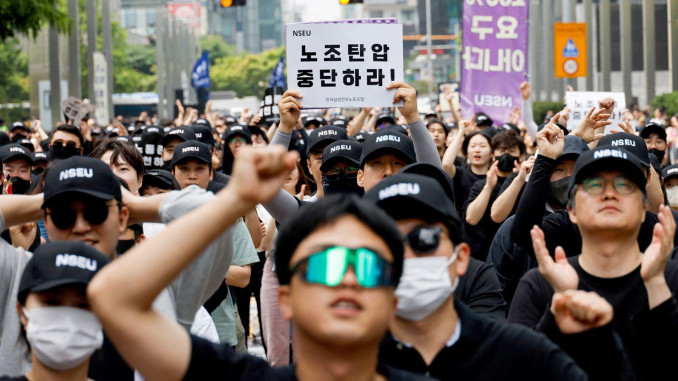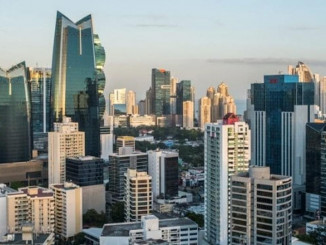
Workers in South Korea are in the midst of their first ever strike against multinational electronics giant Samsung, the nation’s largest single private employer. Their union, the National Samsung Electronics Union (NSEU) was formed only in 2019, and represents about 31,000 Samsung workers, at least 6,500 of whom are currently striking.
The workers have many reasons for striking. Samsung has been notoriously anti-union, fighting for years to keep workers from even organizing a union. There have been deadly blood disorders among workers caused by exposures to the materials used in making chips. There are the long and demanding hours driven by an incentive program rewarded according to supposed economic value added (EVA) and pay that has not kept up with inflation. There are the state subsidies from tax credits and cheap direct loans that cushion the company in case of losses or competition. And then there are the profits the company has made in recent years, not only from it’s massive sales of smartphones, but from the sales of millions of computer chips and semiconductors that go into not only phones, computers and defense industry products but also new and rapidly expanding AI technologies.
Workers and their union are demanding a 3.5% annual pay increase, improved holiday pay and, their most significant demand, reform of the EVA system to be more transparent and to not drive workers to sacrifice their outside lives to meet the requirements for so-called success, and therefore their bonuses.
In its second full week, the strike continues. The company says it can continue production through its high levels of automation, and faces competition from other rivals in the high-tech chip industry. Workers are well organized, and union leaders say they are committed to strike for as long as necessary.
Whether or not they can outlast the company, and whether the state will take a more active role in attempting to end the strike remains to be seen. But no matter the outcome, Samsung workers are taking their first steps towards building worker organization and power that are necessary not only for their own immediate benefit, but for the larger struggles that will be necessary to change the world.




